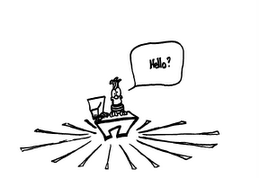The rest is all being seeped out into writing decent Epidemiology and Public Health notes so that I'll be able to write decent essays when the exam comes on the 26th of next month. Apart from that, there's also Orthopaedics and Forensic Medicine to study.
Orthopaedics is going OK, although that also still needs to be tested (hopefully only once on the 28th of November). It's quite interesting so far. I just wish it was just a little tiny bit easier...

Then there's also Forensic Medicine. It is nice though, mind you, not as exciting as CSI Miami, Criminal Minds or all those other shows aired on TV. Despite this, people who decide to do pathology and become experts in this field really do have a challenge ahead of them. Lectures always give me this impression that, just like in all branches of science, there are no absolutes to anything and that sometimes, it is not always possible to expect 100% certainty from your forensic findings.
To scientific minds, this may sound obvious. Unfortunately, in court, doctors are not questioned by people with such (brinlliantly logic and reasonable) minds. Instead, they're questioned by lawyers who never seem to get to grips with the fact that science is well known for it's grey areas and that no stupid questions need to be asked to prove that point during court trails in order to try decrease the court expert's credibility.
And for those people who are thinking that I should cut lawyers some slack, I'll just let the facts speak for themselves. Here are these questions, taken from actual transcripts, and see for yourselves whether lawyers can be very stupid:
Q: Were you present when your picture was taken?
Q: Was it you or your younger brother who was killed in the accident?
Q: Now doctor, isn't it true that when a person dies in his sleep, he doesn't know about it until the next morning?
Q: Did he kill you?
Q: How far apart were the vehicles at the time of the collision?
Q: You were there until the time you left, is that true?
Not convinced? Take this exchange...
Q: Doctor, is it possible that the patient was alive when you began the autopsy?
A: No.
Q: Did you check for pulse or breathing?
A: No.
Q: Then how can you be so sure, Doctor?
A: Because his brain was sitting on my desk in a jar.
Q: But could the patient have still been alive nonetheless?
A: It is possible that he could have been alive and practising law somewhere!
Or this one (a personal favourite if I may add)
Q: So the date of conception [of the baby] was August 8th?
A: Yes
Q: And what were you doing at that time?
Personally, I rest my case!



